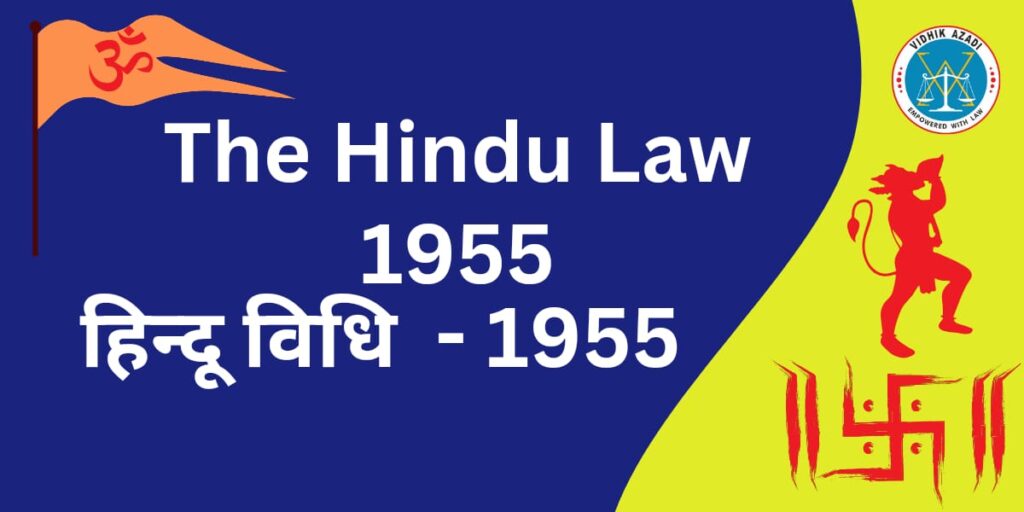Hindu Law

Hindu Law
Hindu law is a complex and ancient legal system that governs the personal and family matters of Hindus in India and other countries where Hindus reside. It is based on the religious texts, customs, and traditions of Hinduism and has evolved over thousands of years. Hindu law can be broadly categorized into two main areas, Classical Hindu law and Modern Hindu law.
Classical Hindu Law is derived from vedas, smritis, commentaries and digests, customs and usages and judicial decisions. The concept of duty and righteousness is central to Hindu law, encompassing moral, social, and religious duties as Dharma. Have classification of society into four main classes or Varnas (Brahmins, Kshatriyas, Vaishyas, and Shudras), each with its own duties and privileges. The division of a person’s life into four stages of Ashrama (Brahmacharya, Grihastha, Vanaprastha, and Sannyasa), each with specific duties. Rules concerned marriage, dowry, inheritance, and family relations. Principles governing the distribution of property after death, including the rights of sons, daughters, and other relatives.
Modern Hindu law has undergone significant reform, especially after India’s independence in 1947, to address contemporary needs and promote gender equality and social justice. The reforms were codified in a series of acts collectively known as the Hindu Code Bills. They are The Hindu Marriage Act, 1955, The Hindu Succession Act, 1956, The Hindu Minority and Guardianship Act, 1956, The Hindu Adoptions and Maintenance Act, 1956. Modern Hindu law emphasizes gender equality and non-discrimination. For example, daughters now have equal rights to inherit property. The Hindu Marriage Act mandates monogamy and provides legal grounds for divorce. Simplifies the adoption process and ensures the maintenance of dependents, including wives, children, and aged parents. Establishes clear guidelines for the guardianship of minors, focusing on the child’s welfare.
Hindu law is a dynamic and multifaceted system rooted in ancient religious texts and evolving through modern legislative reforms and judicial interpretations. It balances traditional values with contemporary principles of justice, equality, and human rights, reflecting the changing social and cultural landscape of Hindu society.
हिंदू लॉ
हिंदू विधि भारतीय कानून का एक महत्वपूर्ण हिस्सा है, जो प्राचीन धार्मिक ग्रंथों और आधुनिक विधान पर आधारित है। इसे दो मुख्य स्रोतों में विभाजित किया जा सकता है: प्राचीन स्रोत और आधुनिक स्त्रोत। प्राचीन स्त्रोत के तहत श्रुति, स्मृति, आचरण, डाइजेस्ट और कमेंट्री को समहित किया गया है जबकि आधुनिक स्रोत के तहत भारतीय संविधान और विशेष कानून जैसे कि हिंदू विवाह अधिनियम, 1955, हिंदू उत्तराधिकार अधिनियम, 1956 आदि को समहित करता है। न्यायिक दृष्टांत, समानता, न्याय और अच्छा विवेक जैसे सिध्दांतों को सुनिश्चित करते हैं।
यह अधिनियम हिंदुओं, जैनियों, सिखों और बौद्धों पर लागू होता है और इसमें विवाह, तलाक, और पुनर्विवाह से संबंधित प्रावधान शामिल हैं। यह विवाह की वैधता के लिए आवश्यक शर्तें निर्धारित करता है, जैसे कि वर-वधू की आयु, मानसिक स्थिति, और विवाह की पंजीकरण प्रक्रिया का वर्णन करता है। यहहिंदू उत्तराधिकार अधिनियम, 1956 के तहत संपत्ति के उत्तराधिकार के नियम तय करता हैं। इसमें पुरुषों और महिलाओं दोनों के उत्तराधिकार के अधिकार शामिल हैं, हालांकि पारिवारिक संपत्ति के मामलों में अक्सर संयुक्त हिंदू परिवार और कोपार्सेनरी की अवधारणाएं लागू होती हैं।
हिंदू विधि न केवल धार्मिक और सामाजिक जीवन को नियमित करती है, बल्कि यह व्यक्तिगत और पारिवारिक मामलों में भी महत्वपूर्ण भूमिका निभाती है। इस प्रकार, यह भारतीय कानूनी प्रणाली का एक महत्वपूर्ण स्तंभ है, जो समाज की प्राचीन और आधुनिक आवश्यकताओं को पूरा करता है।
